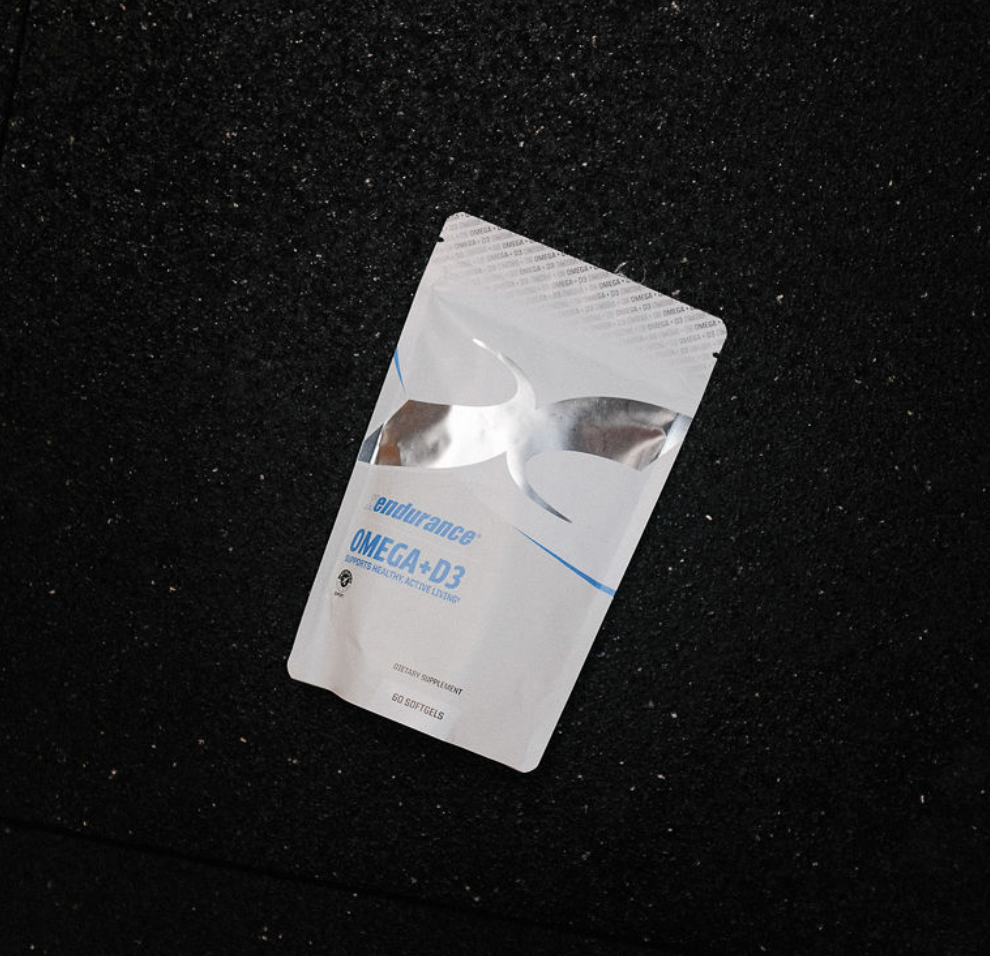In the ever-evolving world of fitness and nutrition, few supplements have garnered as much attention for their science-backed benefits as HMB, or beta-hydroxy beta-methylbutyrate. This naturally occurring compound is produced in your body as it metabolizes leucine, one of the essential branched-chain amino acids (BCAAs) crucial for protein synthesis. While leucine itself is a powerhouse for muscle building, HMB takes it a step further by offering targeted support against muscle breakdown and promoting growth. Whether you're a young athlete pushing your limits in the gym, a busy professional trying to maintain strength, or an older adult aiming to combat age-related muscle loss, HMB could be a game-changer. In this blog, we'll dive deep into why HMB boosts strength, its wide-ranging benefits, optimal dosing, dietary sources, the science supporting it, and whether supplementation is the way to go—especially for enhancing your workouts.
What is HMB and How Does It Work?
HMB is a metabolite of leucine, meaning your body creates it during the breakdown of this amino acid found in protein-rich foods. Only about 5% of leucine is converted to HMB, which explains why direct supplementation can be so impactful. At its core, HMB influences muscle protein metabolism by reducing catabolism (breakdown) and enhancing anabolism (building). It does this by stabilizing cell membranes, inhibiting enzymes that degrade muscle proteins, and activating pathways like mTOR, which signals muscle growth.
This dual action makes HMB particularly valuable for anyone experiencing muscle stress—be it from intense workouts, aging, or even illness. Studies show that HMB can attenuate exercise-induced muscle damage, leading to faster recovery and less soreness. For instance, in resistance training scenarios, HMB has been linked to improvements in lean body mass (LBM) and performance metrics, regardless of prior training experience.
The Benefits of HMB: From Muscle Preservation to Overall Vitality
HMB's benefits extend far beyond the gym, making it suitable for individuals at every life stage. One of its primary advantages is reducing muscle loss, a condition known as sarcopenia in older adults or cachexia in those with chronic illnesses. Research indicates that HMB supplementation can preserve lean body mass in older populations, with meta-analyses showing it prevents muscle atrophy and supports physical function. In one study, long-term HMB combined with vitamin D3 enhanced muscle strength and functionality in seniors, highlighting its role in healthy aging.
For younger folks and athletes, HMB shines in encouraging muscle development. It promotes hypertrophy (muscle growth) and increases strength, with evidence from controlled trials showing gains in power output and resistance to fatigue. A 12-week study on resistance-trained individuals found that HMB-free acid form led to greater hypertrophy, strength, and power compared to placebo, while also preventing performance drops after intense sessions. Additionally, HMB aids aerobic performance and wound healing, making it versatile for endurance athletes or those recovering from injuries.
Other perks include improved body composition during energy deficits—think dieting or high-stress periods—where HMB helps maintain muscle while shedding fat. It also boosts sensorimotor function, which is fancy talk for better coordination and balance, beneficial for everyday activities. Overall, HMB supports regenerative capacity, mitigates damage, and enhances lean mass, as summarized in recent reviews.
Why HMB Boosts Strength and Enhances Workouts
If you're wondering, "Will HMB help with working out?" the answer is a resounding yes, backed by robust science. Strength gains are one of HMB's hallmarks. By reducing muscle protein breakdown during and after exercise, HMB allows for more efficient recovery, enabling you to train harder and more frequently. A position stand from the International Society of Sports Nutrition (ISSN) states that 38 mg per kg of body weight daily (about 3 grams for most adults) enhances skeletal muscle hypertrophy, strength, and power in both trained and untrained individuals.
In workout contexts, HMB is ergogenic, meaning it improves performance. It attenuates damage from eccentric exercises (like lowering weights), which often cause soreness, and supports adaptations like increased muscle protein synthesis—up to 70% in some findings. For example, during sustained energy deficits from intense training, HMB preserved muscle mass and strength, outperforming controls. Athletes report less fatigue and better endurance, with studies linking HMB to improved aerobic capacity and resistance to tiredness.
Even for non-athletes, HMB amplifies workout benefits. In older adults, combining HMB with exercise, gains in gait performance and muscle function were noted, though exercise alone is foundational. Bottom line: If you're lifting weights, running marathons, or just starting a fitness routine, HMB can optimize your efforts by minimizing loss and maximizing gains.
The Science Behind HMB: What Do Studies Say?
HMB isn't hype—it's supported by decades of research. Early studies in the 1990s showed its anticatabolic effects, and modern meta-analyses confirm its efficacy. A comprehensive review found strong evidence for HMB increasing absolute muscle strength and some for muscle mass changes. The ISSN's updated position stand endorses HMB for preventing exercise-induced damage and aiding recovery, with benefits in sarcopenia treatment when paired with exercise.
In older adults, HMB helps prevent lean mass loss and may improve strength, though effects on function vary.
HMB in Foods: Can You Get Enough from Diet Alone?
HMB occurs naturally in small amounts in certain foods, but don't expect to hit therapeutic levels through diet. It's found in grapefruit, alfalfa, catfish, avocado, and cauliflower, with catfish and alfalfa being richer sources. For context, you'd need to consume massive quantities—like pounds of catfish daily—to approach 3 grams of HMB, which is impractical and potentially unhealthy.
Since HMB comes from leucine, high-leucine foods like salmon, chickpeas, eggs, seeds, oats, and legumes indirectly support its production. However, conversion is inefficient, so diet alone won't suffice for supplemental benefits. This is why supplementation bridges the gap.
How Much HMB Should You Take?
Dosing is straightforward: Most experts recommend 3 grams daily, divided into 1-gram servings to maximize absorption. For calcium-HMB (Ca-HMB), 2.4-3 grams is common, while free acid forms may require less due to better bioavailability. Timing matters—take it 1-2 hours before workouts or spread throughout the day. For optimal results, "load" with 1 gram three times daily for two weeks before high-intensity periods.
Body weight influences dosing: Around 38 mg per kg is ideal. Always consult a healthcare provider, especially if you have conditions or take medications, as HMB is generally safe at these levels.
Is Supplementation the Best Way to Take HMB?
Absolutely, supplementation is an excellent, efficient way to harness HMB's benefits, particularly since dietary sources fall short. Studies consistently show efficacy: Oral HMB improves muscle mass, strength, and function at 3 grams daily. It's superior to diet alone for anticatabolic effects, with meta-analyses supporting its use in preserving muscle during aging or stress.
The power of HMB is in Xendurance’s new Strength-5 supplement, delivering a potent 1 gram per scoop alongside L-Glutamine and high-powered Essential Amino Acids (EAAs). This innovative formula is designed to create the most comprehensive strength supplement with HMB as a foundational ingredient.
Compared to leucine supplements, HMB may be more targeted for breakdown prevention, though leucine is cheaper for synthesis. In combination with exercise, HMB amplifies results without negating the diet's role—think of it as an enhancer. For athletes, it's preventive against damage; for others, it's restorative. Side effects are rare, making it a safe addition.
Wrapping Up: Make HMB Part of Your Routine
HMB stands out as a versatile supplement for muscle health across life's stages. From bolstering strength and workout performance to curbing loss and fostering growth, its science-backed perks make it worth considering. While traces exist in foods, supplementation ensures you get the effective dose—around 1-3 grams daily—to reap the rewards. Whether you're hitting the weights or simply staying active, HMB could be the edge you need. As always, pair it with a balanced diet, consistent exercise, and professional advice for the best outcomes.









コメントを書く
このサイトはhCaptchaによって保護されており、hCaptchaプライバシーポリシーおよび利用規約が適用されます。